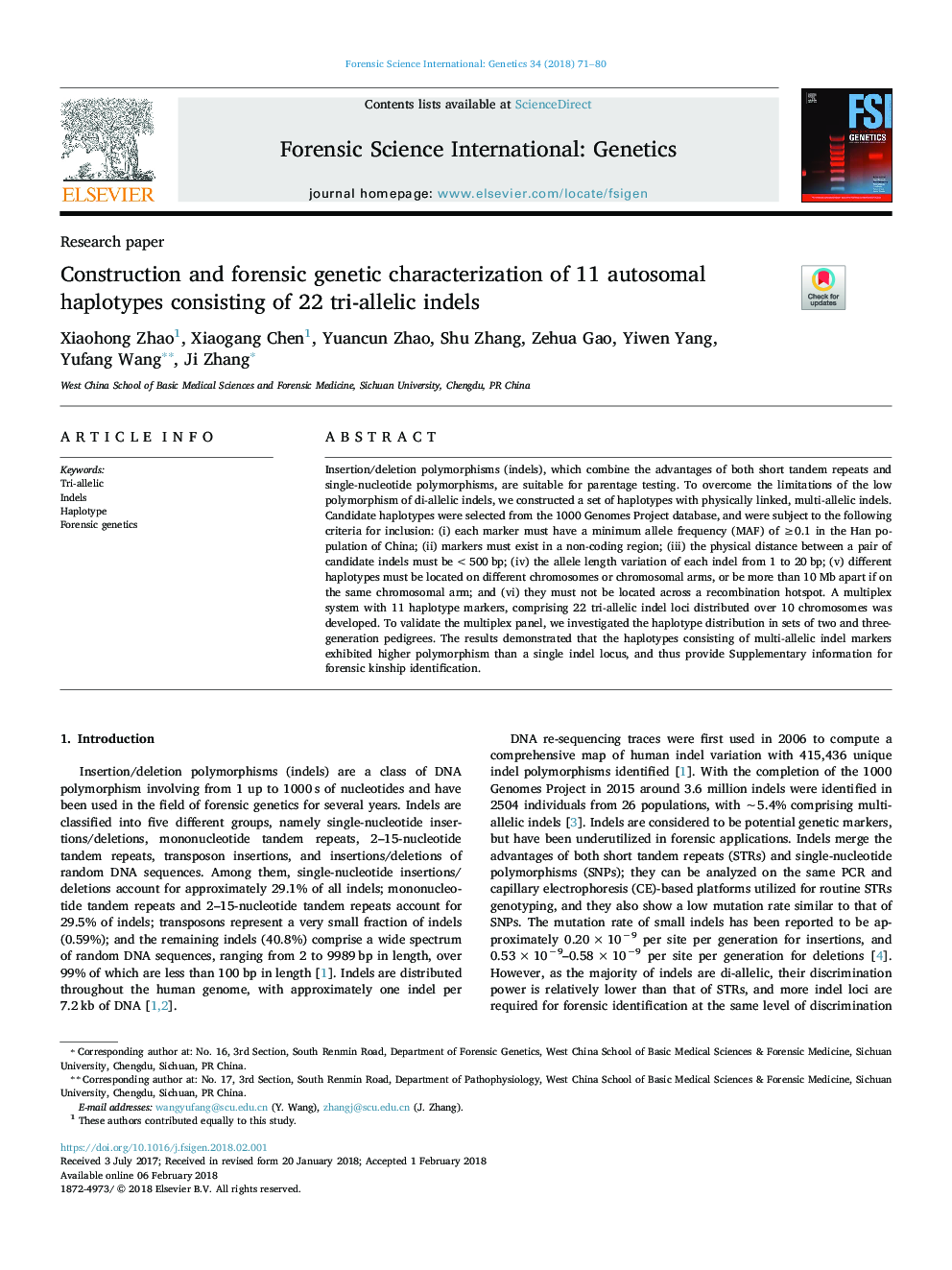| Article ID | Journal | Published Year | Pages | File Type |
|---|---|---|---|---|
| 6553261 | Forensic Science International: Genetics | 2018 | 10 Pages |
Abstract
Insertion/deletion polymorphisms (indels), which combine the advantages of both short tandem repeats and single-nucleotide polymorphisms, are suitable for parentage testing. To overcome the limitations of the low polymorphism of di-allelic indels, we constructed a set of haplotypes with physically linked, multi-allelic indels. Candidate haplotypes were selected from the 1000 Genomes Project database, and were subject to the following criteria for inclusion: (i) each marker must have a minimum allele frequency (MAF) of â¥0.1 in the Han population of China; (ii) markers must exist in a non-coding region; (iii) the physical distance between a pair of candidate indels must be <500â¯bp; (iv) the allele length variation of each indel from 1 to 20â¯bp; (v) different haplotypes must be located on different chromosomes or chromosomal arms, or be more than 10 Mb apart if on the same chromosomal arm; and (vi) they must not be located across a recombination hotspot. A multiplex system with 11 haplotype markers, comprising 22 tri-allelic indel loci distributed over 10 chromosomes was developed. To validate the multiplex panel, we investigated the haplotype distribution in sets of two and three-generation pedigrees. The results demonstrated that the haplotypes consisting of multi-allelic indel markers exhibited higher polymorphism than a single indel locus, and thus provide Supplementary information for forensic kinship identification.
Keywords
Related Topics
Life Sciences
Biochemistry, Genetics and Molecular Biology
Genetics
Authors
Xiaohong Zhao, Xiaogang Chen, Yuancun Zhao, Shu Zhang, Zehua Gao, Yiwen Yang, Yufang Wang, Ji Zhang,
